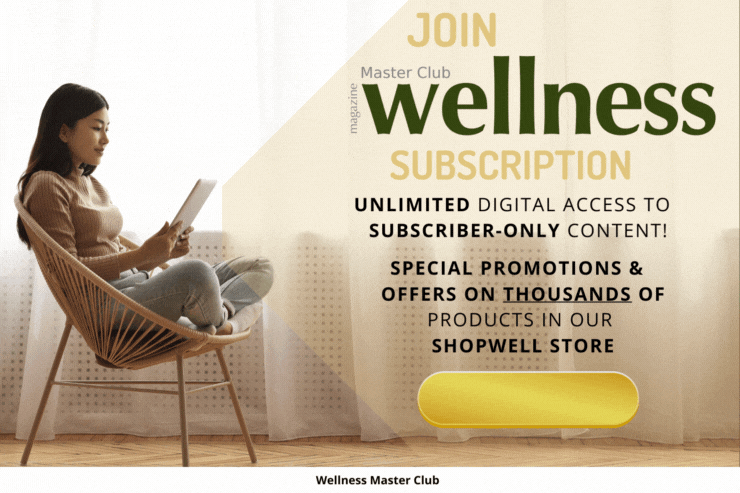Today life is overcome with stress, and you are always, pressed for time, and in a rush. Everyone is on a mission to find ways to do things faster. Be honest, how many times do you fill up on fast foods because “there is just no time to cook”? You aren’t the only one, most people do this daily, without sparing a thought for their health is being affected; until it is too late. In a perfect world, you would be able to achieve a state of ideal health, without having to compromise any part of your busy lifestyle. While the dream seems so unattainable, many forge ahead. Vitamins and supplements are the stepping stones on the path to reaching that balance.
The biggest questions of all are ones that are asked many times over, “Are vitamins and supplements necessary and beneficial?” and of course, “Which ones are the best to use for optimal results?” There are so many different varieties on the market, all promising different outcomes, traversing through the plethora available to find your ideal concoction could become a costly affair.
Vitamins are micronutrients that are an essential tool in maintaining our bodily function. They can prevent nutrient deficiencies in our bodies and encourage overall well-being. However, misconceptions and misinformation abound, making it challenging to discern fact from fiction. This article aims to shed light on the world of vitamins and supplements, offering clarity on their significance, proper usage, and the potential benefits they may provide.
From the classic vitamin C touted for its immune-boosting properties to the lesser-known vitamin K crucial for blood clotting, each vitamin plays a distinct role in maintaining our health. Yet, with dietary habits evolving and lifestyles becoming increasingly fast-paced, obtaining adequate nutrition solely through food sources has become a challenge for many. Consequently, the use of vitamin supplements has surged, promising to bridge nutritional gaps and bolster well-being.
However, the decision to incorporate supplements into one’s daily regimen is not one to be taken lightly. While they can be valuable tools in promoting health, they are not a panacea, and their indiscriminate use may even pose risks. Thus, understanding the nuances of supplementation—such as proper dosages, potential interactions with medications, and the importance of quality—becomes imperative for informed decision-making.

Navigating the realm of vitamins and supplements requires a nuanced approach, one that considers individual needs, lifestyle factors, and the latest scientific evidence. By demystifying the complexities surrounding these micronutrients and offering insights into their role in our well-being, this article aims to empower readers to make informed choices for a healthier, more vibrant life.
The genesis of HealthBox was rooted in the frustration of managing multiple supplements daily, a task that had become burdensome for health-conscious individuals. The arduous process of purchasing, scrutinizing labels, and organizing bottles had reached a tipping point, necessitating a simpler solution. Thus, the concept of a single box containing a 30-day supply of pre-packaged vitamins was born. This innovative approach eliminated the hassle, allowing users to tear open a daily pack and consume it with water, streamlining their daily routine. Moreover, the subscription model ensured timely replenishment without requiring customer intervention, adding convenience to the equation.
In crafting the brand identity, emphasis was placed on creating an attractive, user-friendly design to enhance the overall experience. Recognizing the role of aesthetics in product enjoyment and consistency, HealthBox was designed not only as a functional tool but also as a visible reminder of wellness goals. The sleek, eco-friendly packaging underscored the brand’s commitment to sustainability, utilizing recyclable materials and compostable packs to minimize environmental impact.
HealthBox wasn’t just about providing a convenient supplement solution; it aimed to promote a gradual shift towards a healthier lifestyle. Acknowledging the prevalence of nutrient deficiencies impacting energy levels and overall well-being, the brand sought to empower individuals by supplying essential nutrients and offering lifestyle recommendations. By addressing these needs comprehensively, HealthBox aims to enable individuals to thrive in both their personal and professional lives.
To assist users in selecting the right supplements, HealthBox offered a concise quiz developed by wellness experts. This personalized assessment took into account dietary habits, lifestyle factors, and health goals, facilitating informed choices tailored to individual needs. Additionally, complimentary consultations were available to further address specific concerns and provide personalized guidance.
However, HealthBox’s mission extended beyond mere product sales. The brand aimed to educate and inspire its community through newsletters, social media updates, and research-backed information. By sharing knowledge and fostering dialogue, HealthBox sought to cultivate a community committed to holistic wellness, fostering a sense of empowerment and support among its users. Through these efforts, HealthBox aimed to provide a product and create a movement towards a healthier, more fulfilling lifestyle.

Vitamin D3
Vitamin D3, the sunshine vitamin, is crucial in various bodily functions. Deficiency in vitamin D3 can lead to several health issues, and its symptoms can include:
Tiredness, even after adequate rest, is a common symptom of vitamin D3 deficiency. Vitamin D3 deficiency leads to weakened bones and muscles, resulting in pain, particularly in the back, legs, and joints. Muscle weakness is also common. Vitamin D3 deficiency is associated with mood disorders such as depression and anxiety. Low levels of vitamin D3 can slow down the ability to heal wounds. While not as common as other symptoms, some people with vitamin D3 deficiency may experience hair loss or thinning.
The benefits of vitamin D3 are numerous and include:
Vitamin D3 is essential for calcium absorption in the gut that is crucial for maintaining strong and healthy bones. It helps prevent conditions like osteoporosis and osteomalacia. Vitamin D3 is vital in supporting the immune system and helping the body fight infections and diseases. Adequate levels of vitamin D3 are associated with better mood regulation and may help reduce the risk of depression and anxiety. Vitamin D3 is vital for muscle strength and function. Deficiency can lead to muscle weakness and pain. Some research suggests that vitamin D3 has a protective effect on the heart and cardiovascular system, though more studies are needed to confirm this. There is evidence to suggest that sufficient levels of vitamin D3 may help reduce the risk of certain types of cancer, including breast, colon, and prostate cancer. Some studies have indicated a potential link between vitamin D3 levels and cognitive function, suggesting that adequate levels may help maintain brain health and reduce the risk of cognitive decline with age.
Ensuring adequate intake of vitamin D3 through sunlight exposure, diet, and supplements, when necessary, can contribute to overall health and well-being.
You can Increase Vitamin D levels through lifestyle changes and dietary choices. Here are some suggestions to help boost your Vitamin D levels:
Vitamin D, is often called the “sunshine vitamin” because your skin produces it when exposed to sunlight. Aim for 10-30 minutes of sunlight exposure on your skin, particularly arms, legs, and face, without sunscreen, at least a few times a week. However, be cautious of overexposure to sunlight, especially during peak hours when UV radiation is most potent.
Incorporate foods high in Vitamin D into your diet. Some examples include fatty fish (such as salmon, mackerel, and sardines), egg yolks, fortified dairy products (like milk, yogurt, and cheese), fortified cereals, and fortified orange juice.
If you have difficulty getting enough Vitamin D through sunlight and diet alone, consider taking a Vitamin D supplement from HealthBox.
Vitamin D is fat-soluble, which means its stored in body fat. Studies have shown that obese individuals may have lower levels of circulating Vitamin D. Maintaining a healthy weight through regular exercise and a balanced diet can help optimize your Vitamin D levels.
Engaging in regular physical activity can help improve Vitamin D levels. Exercise outdoors, when possible, to combine the benefits of sunlight exposure with physical activity.
Magnesium-rich foods include nuts, seeds, leafy green vegetables, and whole grains. Zinc-rich foods include meat, shellfish, legumes, seeds, and nuts. These minerals are vital for the metabolism of Vitamin D, and to help optimize how the body absorbs and uses the nutrient.
Excessive alcohol and caffeine consumption may interfere with Vitamin D metabolism and absorption. Moderating your intake of these substances may help support healthy Vitamin D levels.

Vitamin B12
Vitamin B12, or cobalamin, an essential nutrient, is crucial in various bodily functions. Here are some signs of Vitamin B12 deficiency and the benefits of maintaining adequate levels of this vitamin:
Signs that you have a Vitamin B12 deficiency:
Vitamin B12 is involved in red blood cell production. Red blood transport oxygen to every part of your body. Deficiency of B12 can lead to anemia, resulting in fatigue and weakness.Anemia caused by B12 deficiency can result in pale or jaundiced skin due to decreased red blood cell production.Vitamin B12 deficiency can damage the nerves, leading to numbness or a tingling sensation in the hands and feet, commonly known as “pins and needles”.Neurological symptoms may include difficulty walking, balance problems, and muscle weakness.B12 deficiency can affect cognitive function, leading to memory problems, confusion, and difficulty concentrating.Vitamin B12 deficiency affects mood changes, including depression and irritability.Some individuals may experience digestive problems such as diarrhea, constipation, or loss of appetite.
Benefits of Vitamin B12
Vitamin B12 is essential to produce red blood cells, which carry oxygen to tissues throughout the body. Maintaining adequate levels of B12 helps prevent anemia and ensures optimal oxygen delivery.B12 is crucial in maintaining nerve cell health and nervous system function. It assists myelin synthesis. Myelin is a protective coating around nerves essential for signal transmission.B12 is integral for metabolizing carbohydrates, fats, and proteins, converting them into energy. Adequate levels of B12 support overall energy levels and prevent fatigue.Vitamin B12 is necessary for DNA-synthesis. DNA is the genetic material in cells. It plays a vital role in cell division and growth. It is imperative for the rapidly dividing cells in bone marrow, and the gastrointestinal tract.B12, along with other B vitamins like B6 and folate, helps regulate homocysteine levels in the blood. Elevated homocysteine levels are associated with an increased risk of cardiovascular disease, so adequate B12 intake may help promote heart health.B12 is plays an active role in synthesizing neurotransmitters such as serotonin and dopamine, which are vital for mood regulation. Maintaining optimal B12 levels may help support mental well-being and reduce the risk of mood disorders.Vitamin B12 contributes to healthy skin, hair, and nails by supporting cell reproduction and turnover. Adequate B12 levels promote healthy skin by preventing dryness and premature aging. B12 also supports strong, shiny hair and nails.Ensuring an adequate intake of Vitamin B12 through diet or supplementation is essential for overall health and well-being.
The world of vitamins and supplements offers myriad products for those who want to do the most for their health and well-being. While taking vitamin supplements can be beneficial in addressing specific deficiencies or supporting certain health goals, remember to approach supplementation with caution and knowledge. Healthbox’s innovative approach to personalized monthly “boxes” empowers you to tailor your supplementation regimen to your unique needs, providing convenience without compromising quality. However, it’s essential to remember that supplements are not a substitute for a balanced diet and a healthy lifestyle.




